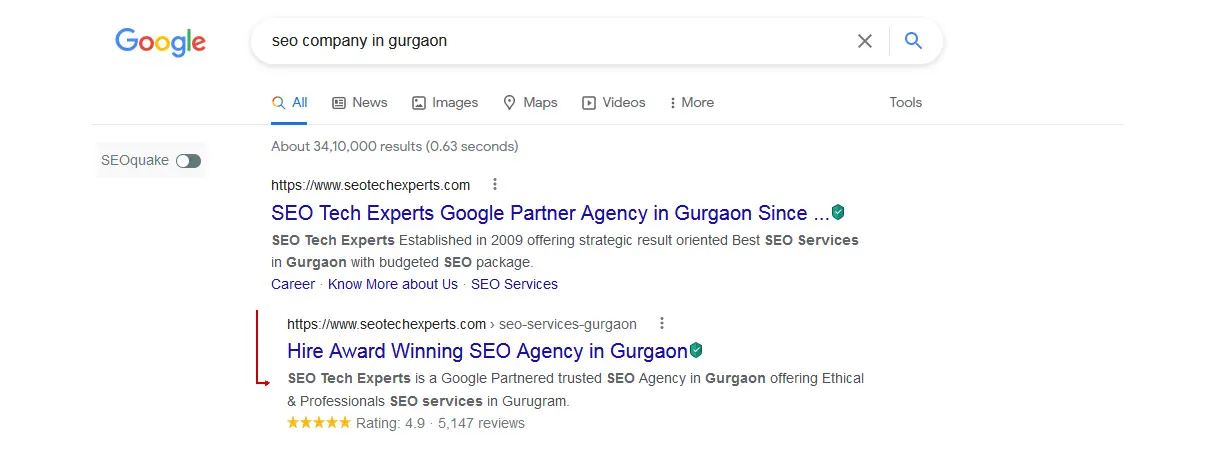Google Confirms Update to Generating Web Page Titles
Recently, Google confirmed that it plans to update how it generates some titles on the search engine. Google's Danny Sullivan said that the previous week company introduced one of the latest ways to developing tags for web pages. Before that, titles were based on the query raised, and it will no longer continue with the new google update. It is mainly because the tech giant feels their system produces titles that work perfectly overall to describe what they include irrespective of the specific query.
As seen in the previous week's search results, the new system of generating various web page titles has been extensively presented. Within the SEO industry, it was observed that Google has been replacing web titles with other on-page text. To quote, Google has been using text that humans can see visually when they click on the web page. It considers the main title of the visual or headlines shown on a specific page or the content that site owners update amid H1 tags integrated with other header tags. It uses anything large and popular through various treatments. Google might also include considering using text amid links pointing at multiple pages.
Reasons why Google chooses to use more than HTML title tag next:

When a specific page's HTML title doesn't fit perfectly what it is all about, google chooses to consider other texts. The title tags don't describe a page mainly because they are stuffed with various keywords, are too long, and contain almost no text. Overall, the update aims to generate more readable and accessible titles for web pages. The search engine also includes several site names where it is seen as helpful. On the flip side, Google chooses to select the most relevant content when they encounter huge titles. Even though Google has been taking a unique approach to generating various web pages, that doesn't mean that title pages are less important. Several people tend to wonder that if they still need to create specific titles for their pages, they must know it is 100% vital. They shouldn't just leave it to Google as original HTML tags would be used at least 80% of the time. While testing, Google also states that some updates create seamless titles to read and are mainly preferred by searchers than the old way of generating titles.
Can you opt-out of this update?
Once Google replaces the page titles, they cannot be opt-out. Sullivan also suggests that there should be a feature amid the Search console where they could order Google to not replace the HTML title tags for various specific pages.
Google considers the searcher:
Google page title has mainly updated its title generation algorithm to prioritize various elements, which will help the researchers to find the relevant content. It would affect how the titles appear in the search engines preview. Additionally, users need to know that not all keywords are immune to title score change. But they don't need to stress as they can continuously monitor their IP for various shifts. To quote shortly, the update mainly aims to make the web browsing experience quick and fun.

A Google spoke person, Danny, says that Google has rolled out the updates, especially with web titles, so that they don't differ based on various queries. The update aims to speed up away to get a higher rank without sacrificing plenty of search engines. The primary aim of Google is for its patrons to deliver what the users want immediately and the current updates in their way to implement it. Google has been introducing title tags to their search results slowly, and the latest update learns how one can interact with a web page, and a search title tag would be helpful for searchers finding those features seamlessly. Besides offering a better title tag, Google would also display some relevant pages on its first page if there are some relevant pages. This hasn't happened ever before.
Google tries to rank the perfect answer for the searcher's issue:
The new update can be seen on some search engines like google grabbing some answers, which the AdSense system has penalized. Danny also believes that the latest update would be dynamic than ever before. When one writes excellent content, people would notice it and might take action, which would lead to better conversations and online traffic. The new title update tends to use the original content from various pages to learn about what the pages are actually about. Google is ideally changing the website ranking process.
The latest update is based on how relevant content is to the user's query. When one types their query, the search engine considers the quality of answers provided by a specific site, links from other sites, and other elements to display the best solutions possible. The update doesn't apply to all searches or even languages.
Tips for assessing the impact:
A lot of optimization goes for keywords and titles when it comes to Google's SERPs. The latest update by Google has given a lot of importance to improving one's title tags. While using the new title tags, one can easily optimize their rankings and reduce the time it would take for search engines to retrieve the content from the internet. SERPs are refreshed regularly, so one must ensure that they keep track of titles and remain relevant.
If one hasn't updated their writing approach, then it's the right time to do so. It's been sometime now that Google has rolled out the updates, so several web admins have noticed the changes in how their pages were displayed. Thanks to the update, the page now includes information about the page.
Of course, without a doubt, you can say that the change has something to do with organic search rankings, which better titles mean more organic traffic, which would lead to more click-through rates. The best part about the update is that one can quickly improve the site's rankings.